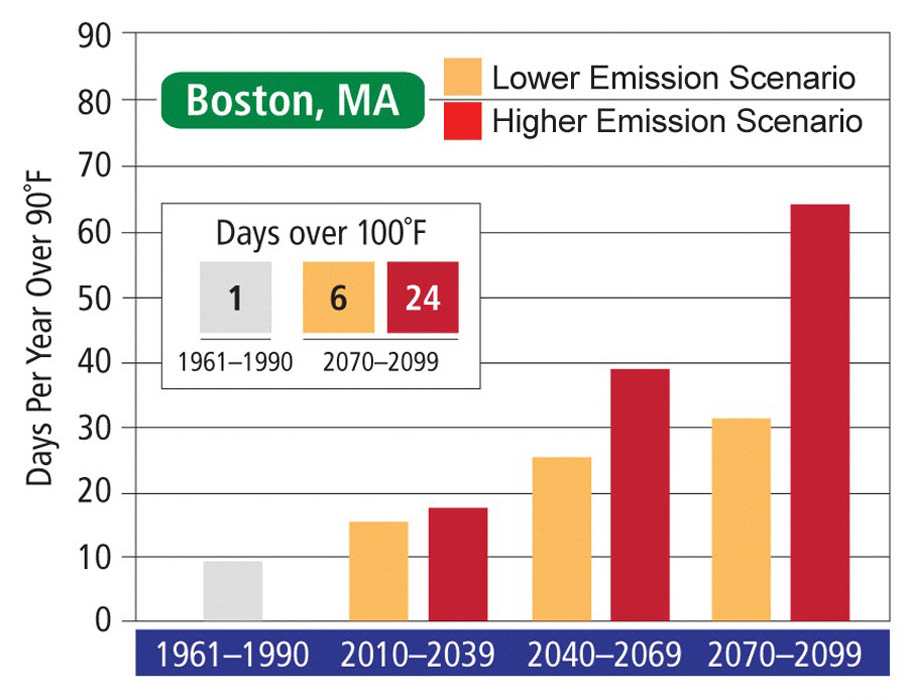
Northeasterners on Twitter were imaginative to say the least:
Our answer?
It depends on whether you’re looking in the past or the future.
Compared to the past, it’s sweltering. The average high for July over the past few decades is 82°F. We’re at 87.1°F this year. The average number of July days above 90°F is 5.4. We’re 10 days into July, and the end is still nowhere in sight.
But compared to the recent past – and the future – hot days and “heat waves” are actually becoming the norm. Most of us probably remember 2011, when Boston recorded the second-highest temperature ever.
Let’s take the past four years as additional examples. We’ve gone past the average highs for July for four years in a row now. We’ve also punched through the average number of July days above 90°F four years in a row:
It’s only going to get hotter as time goes on. 90-degree days may become the norm in Boston, and a heat wave could push us over 100°F quite regularly. In fact, because of climate change, it’s true all over the world: One study in Nature found that 2005, 2007, 2010 and 2011 were the warmest in the past 600 years. Another study found that climate change likely more than doubled the risk of extreme heat waves. In Boston, between 1961 and 1990, we had one day over 100°F. We’ve had three days over 100°F in the past three years alone.
So what?
Well, first off, if you’re anything like us, getting punched in the face by humidity and heat anytime you walk out the door is not in your top five favorite things. Here are some other things also caused by heat waves that probably aren’t in your top-five list:
- Heat waves can increase the likelihood of asthma attacks.
- Heat can also cause strokes.
- Electricity blackouts are much more likely; although power was quickly restored, 2,400 customers lost power temporarily today. The average price for electricity shot through the roof to over $600/megawatt-hour yesterday, which means that the electrical grid was severely overloaded: It’s usually closer to $50/megawatt-hour.
What should I do?
Stay cool first and foremost! Greenovate’s resource on low-carbon cooling includes locations on Boston’s cooling centers!
But while you stay cool, remember that blackouts happen when people use a lot of A/C and electricity all at the same time. So minimize your electricity use at the same time by following some of these other tips:


Recent Comments